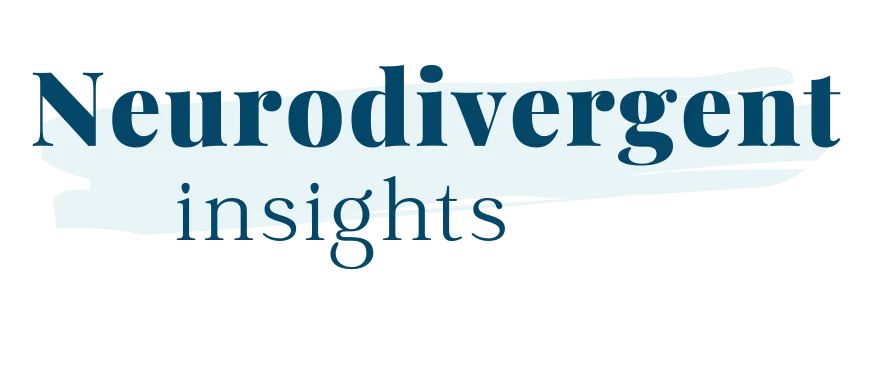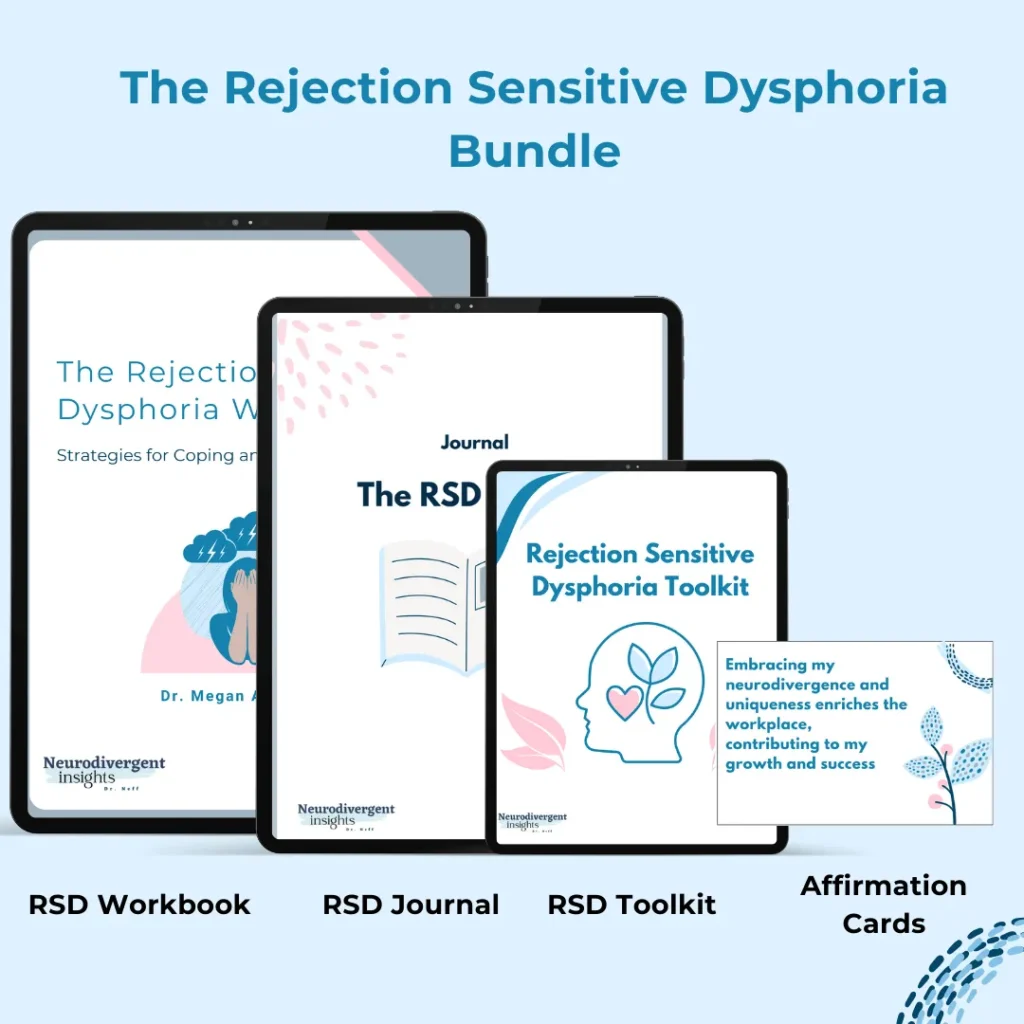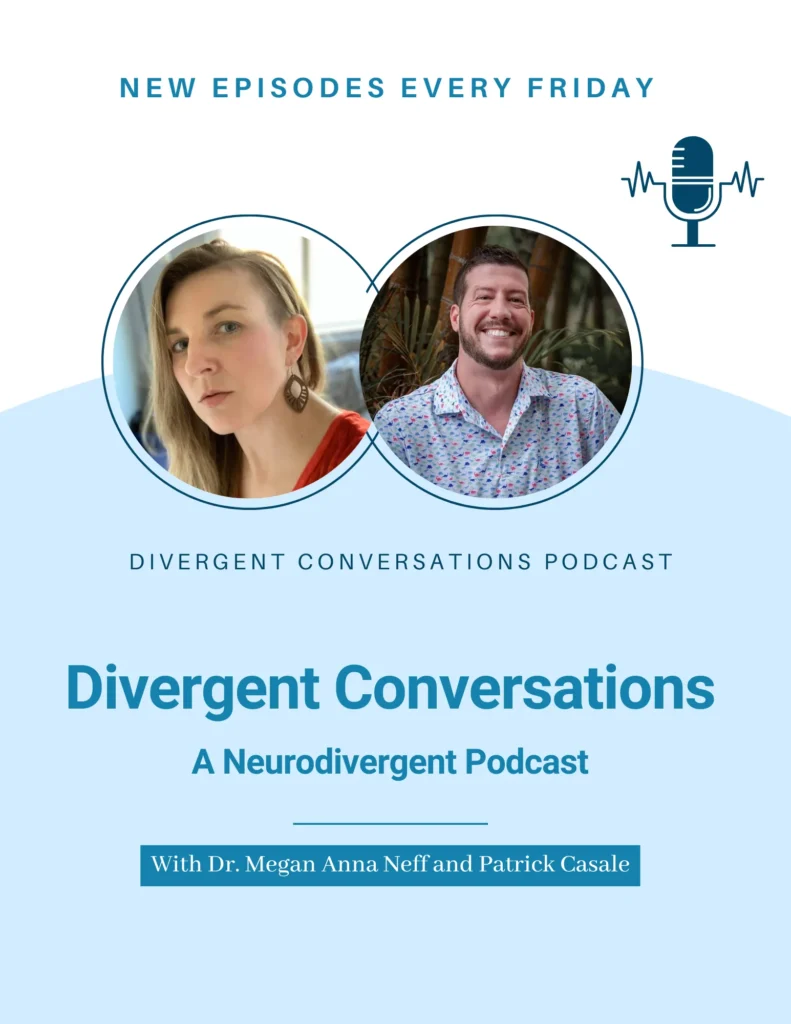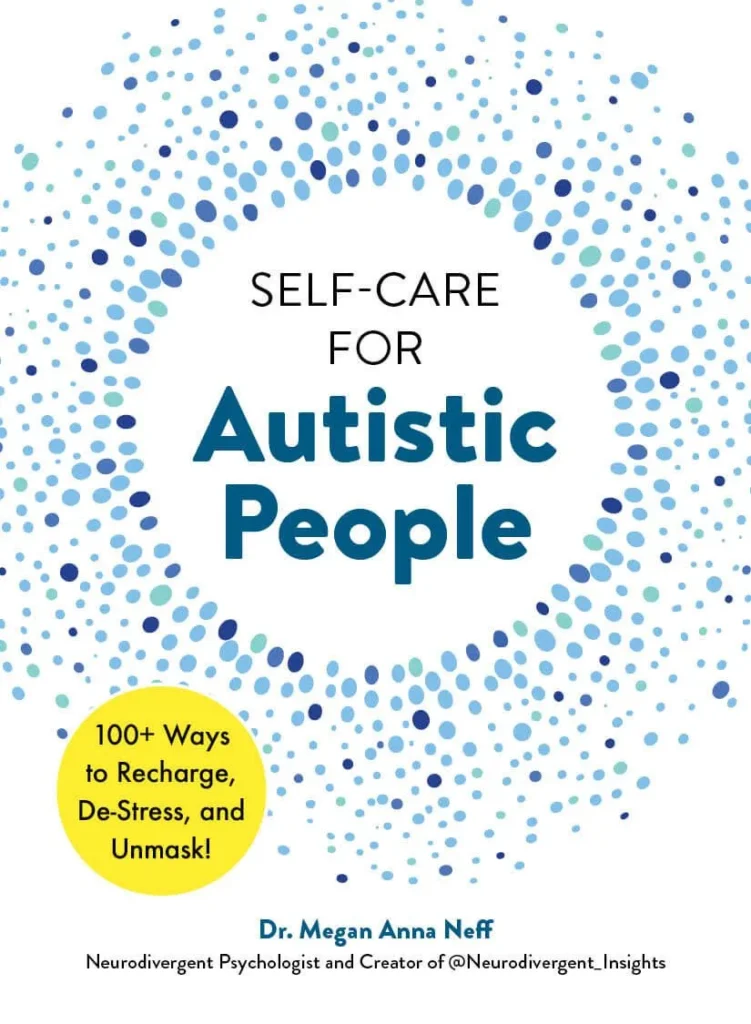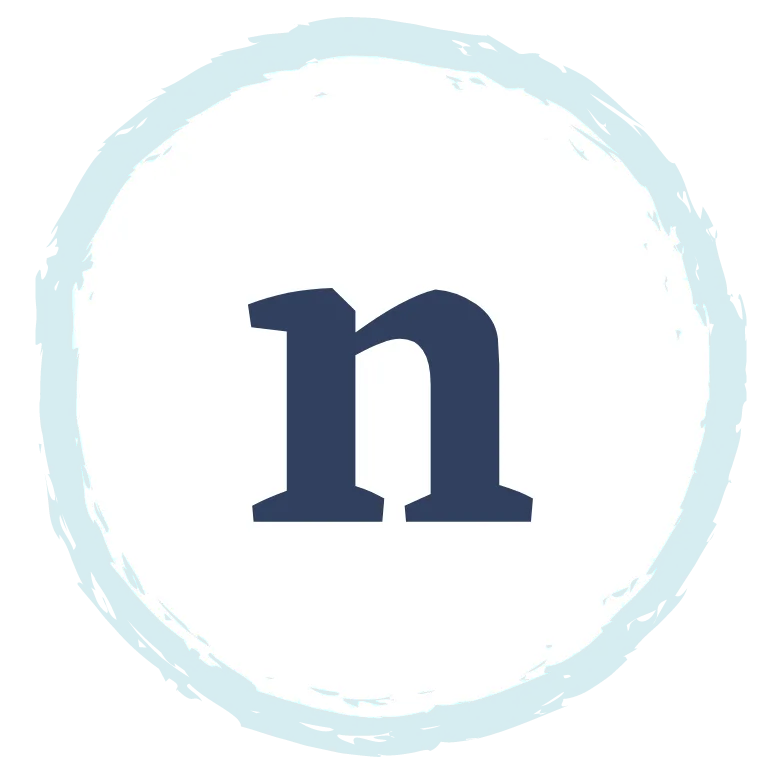
From Childhood Tricks to Dyslexia Advocacy: My Journey with Neurodiversity
Back in my childhood, I fancied myself quite the sneak. The process of learning words, reading, and spelling seemed like a labyrinth of dread, confusion, and overwhelm. In a moment of youthful brilliance, I concocted a plan to outsmart my mom by memorizing the book she used to help me read at night. If only I hadn’t strayed a page too far and ended – my cunning trick might have succeeded. However, she quickly caught on I was reciting words vs reading!
I had a stash of secret strategies to veil my struggles, yet the zero out of twenty glaring back at me from my first-grade spelling test perhaps should have hinted that words and spelling were no walk in the park. Reflecting now, I understand that my battle was with surface-level and phonological dyslexia, a common experience among Autistic people. And while I’ve developed several techniques to manage my dyslexia, having early support would have brought immense solace. It might have shielded me from narratives of inadequacy and unintelligence that took root, and preserved my love of learning. If a child with dyslexia is encountering school-related hurdles in your life, this blog post might hold insights.
Spotting dyslexia in our young ones and securing proper support can pave the way for their triumph, transforming their self-esteem and shaping their perspective on learning. In this post, I’m delving into the diverse strains of dyslexia, exploring targeted interventions for each variation, and deciphering the essence of dyslexia tutoring, its potential, and its manifestations. I’ll offer you insights on the different tutoring services available. And be sure to scroll down for a chance to grab a $100 discount on a Dyslexia Tutoring package with Marker Learning.
What is Dyslexia?
Dyslexia is a form of neurodivergence that affects how individuals process written language, particularly in reading, spelling, and writing. Here are some common signs of dyslexia:
Difficulty with Reading: Struggles to decode words and may read slowly and inaccurately. The individual might skip over words, add or substitute words, or struggle to recognize common words.
Spelling Challenges: Exhibits persistent spelling difficulties, often misspelling words that don’t follow regular phonetic patterns.
Phonological Awareness Issues: Has trouble breaking words down into individual sounds (phonemes) and manipulating those sounds.
Difficulty with Phonemic Awareness: Struggles to understand that words are made up of individual sounds and has difficulty associating sounds with letters.
Slow Vocabulary Growth: May have a limited vocabulary for their age and struggle to learn new words quickly.
Poor Reading Fluency: Reads with choppy, uneven rhythm and may lack fluency.
Difficulty with Rhyming: Struggles to recognize and produce rhyming words.
Directional Confusion: May have trouble with left-right orientation, which can affect reading, writing, and understanding directions.
Difficulty with Sequencing: Struggles with tasks that involve sequencing, such as the order of letters in words, days of the week, or steps in a process.
Trouble Remembering Sight Words: Finds it challenging to recognize common, frequently used words by sight.
Letter and Number Reversals: May frequently reverse or transpose letters and numbers, like confusing “b” and “d” or “6” and “9”.
Difficulty with Reading Comprehension: Struggles to grasp the meaning of what they’ve read, even if they can read the words accurately.
Avoidance of Reading Aloud: May avoid reading aloud in front of others due to fear of making mistakes.
Memory Challenges: Difficulty remembering sequences, facts, and instructions.
Delayed Speech Development: Might have had a delayed speech development as a young child, struggling with pronouncing words correctly.
While dyslexia primarily affects reading, writing, and spelling skills, it can also have secondary emotional and social impacts. Here are some additional signs you might observe in a child with dyslexia, particularly in terms of emotional well-being:
Frustration and Low Self-Esteem: Children with dyslexia often face challenges that their peers may not fully understand. Struggling with reading and writing can lead to frustration, and repeated difficulties can erode their self-confidence and self-esteem.
Emotional Outbursts: Due to the frustration of trying to keep up in school and feeling like they’re falling behind, some children with dyslexia might exhibit emotional outbursts, ranging from anger and frustration to sadness.
Avoidance of Reading/Writing Tasks: Children with dyslexia may actively avoid tasks that involve reading and writing, even if they enjoy other aspects of learning. This avoidance can lead to missed assignments and a reluctance to participate in class.
Withdrawal from Social Activities: Struggling academically can lead to social withdrawal. Children with dyslexia might feel embarrassed about their difficulties, leading them to isolate themselves from peers and social activities.
Negative School Experience: If their struggles aren’t properly recognized and addressed, children with dyslexia might develop negative attitudes toward school. They may associate it with stress, anxiety, and feelings of inadequacy.
Perfectionism: Some children with dyslexia develop perfectionist tendencies as they try to compensate for their difficulties. They might fear making mistakes and might avoid tasks they think they can’t excel in.
Depression and Anxiety: Over time, the emotional toll of struggling academically and feeling different from peers can contribute to symptoms of depression and anxiety. These feelings can exacerbate the challenges they face.
Peer Rejection: Children with dyslexia might struggle to keep up with classroom activities, leading to potential social isolation and peer rejection. This, in turn, can contribute to feelings of loneliness and sadness.
Loss of Interest in Learning: If the learning environment is not supportive, some children with dyslexia might lose their enthusiasm for learning and education. This can impact their overall motivation to engage with school-related tasks.
Types of Dyslexia and Their Needs
There are different types of dyslexia, each with its unique characteristics, needs, and interventions. A person with dyslexia may have a combination of these types or exhibit varying degrees of each subtype of dyslexia. Understanding these variations can help tailor interventions and support for people with dyslexia. Here are some of the main types of dyslexia and their needs:
Surface Level Dyslexia:

Difficulty with sight word recognition: Individuals may struggle to recognize whole words by sight and instead rely heavily on decoding strategies.
Spelling difficulties: Spelling irregular words can be challenging.
Interventions may focus on sight word recognition, word-specific spelling rules, and exposure to frequently encountered irregular words.
Phonological Dyslexia:
Difficulty with phonological awareness: People struggle to identify and manipulate the sounds in spoken words.
Challenges in decoding: They may have difficulty translating letters into sounds and blending them to read words.
Interventions may include phonics-based instruction, auditory training, and practicing sound-letter associations.
Rapid Naming Dyslexia:
Slow naming of familiar objects, colors, or letters: People with this form of dyslexia may find it challenging to retrieve names when shown visual materials quickly.
Linked to difficulties in processing speed and automaticity.
Interventions may include activities to improve rapid naming speed, such as repeated exposure to visual materials and timed naming tasks.
Double Deficit Dyslexia:
Double deficit dyslexia presents a formidable hurdle to reading and spelling, as it encompasses two distinct challenges that can intertwine, exacerbating the overall struggle.
Linked to Challenges related to both phonological processing and the rapid naming of letters or objects, making reading and spelling particularly challenging.
Interventions may need to address both phonological awareness and rapid naming skills simultaneously.
Visual Dyslexia:
Visual dyslexia is characterized by difficulties in accurately perceiving and distinguishing between visual elements of letters and words.
Challenges with letter reversals (e.g., confusing “b” and “d”) or difficulty discerning subtle differences between visually similar letters.
Interventions may address these challenges through specialized visual exercises, perceptual training, and strategies to enhance letter recognition and differentiation. Additionally, utilizing multi-sensory techniques and incorporating color-coded cues can reinforce correct letter orientation and minimize confusion between visually ambiguous characters.
Attentional Dyslexia:
- Attentional dyslexia is often associated with attention and visual processing difficulties. With attentional dyslexia letters shift amidst neighboring words, yet remain correctly identified and maintain their accurate positions within each word. As an illustration, consider the phrase “bright sun,” which could be perceived as “bight run” due to this unique phenomenon.
Associated with difficulty maintaining focus on written text, tracking lines of text, or accurately shifting attention from one word to another.
Interventions may focus on improving attentional control and visual processing skills through techniques such as guided visual tracking exercises, mindfulness strategies, and structured reading practices that encourage systematic scanning of text. Additionally, assistive technologies, like text-to-speech software, can help alleviate the challenges of shifting attention between words and maintaining engagement with written material. Color strips can also be used to support reading texts.
Orthographic Dyslexia:
Orthographic dyslexia arises when an individual possesses moderate to high phonemic awareness, yet struggles to apply this proficiency to written words. This encompasses difficulties in processing the holistic visual form of words. This entails challenges in identifying word patterns, including prefixes, suffixes, and familiar word groups – all of which play a crucial role in promoting proficient reading and spelling.
Associated with challenges in recognizing words by sight, affecting reading fluency.
Interventions may involve teaching word patterns and sight words, using visual aids and word chunking strategies. Interventions for orthographic dyslexia may encompass systematic instruction in word morphology, emphasizing the recognition of word parts like prefixes, suffixes, and root words. Structured word analysis exercises and mnemonic techniques can aid in improving word pattern recognition. Additionally, exposure to a wide range of vocabulary and extensive reading practice can help individuals develop a more intuitive understanding of word structures and enhance their spelling and reading skills.
Auditory Dyslexia:
Auditory dyslexia is characterized by difficulties in processing and discerning between sounds. This can lead to challenges in recognizing and manipulating phonemes, which are the smallest sound units in language. In this condition, there’s trouble in dealing with the sounds associated with individual letters and groups of letters, resulting in a reading experience that is notably slow and requires substantial effort.
Interventions for auditory dyslexia include auditory discrimination training and phonemic awareness exercises. Multisensory techniques, combined with speech therapy and specialized reading programs, can strengthen auditory processing skills, aiding in better recognition and manipulation of phonemes for improved reading and spelling.
Dyslexia Tutoring
Dyslexia tutoring provides tailored educational support that truly understands the unique challenges faced by kids with dyslexia. Ideally, it is a place where children with dyslexia can feel valued, accepted, and empowered on their learning journey.
When we talk about dyslexia tutoring, it’s essential to recognize that dyslexia is not a measure of intelligence; rather, it is a neurodivergent condition that affects how the brain processes and interprets language. Dyslexic people often experience difficulties in reading, writing, spelling, and sometimes even in verbal expression. However, with the right support and strategies, they can thrive inside and outside the classroom. When we provide our children with the support that helps them to thrive, it helps them to unlock their creativity and lean into the strengths of their dyslexic brain.
How Can Tutoring Help?
Dyslexia tutoring uses evidence-based approaches that are tailored to the unique needs of each child. Tutors are trained to provide personalized guidance, meeting students exactly where they are on their learning path. Through introducing new practices a person’s brain can rewrite to where they are not needing to work as hard on decoding language (for more about right and left brain activation and dyslexia and how this can be adjusted see this five-minute Ted-Ed video).
One of the primary goals of dyslexia tutoring is to develop essential literacy skills, such as phonemic awareness, decoding, and reading fluency. Tutors utilize multi-sensory techniques that engage multiple senses simultaneously, reinforcing learning and making it a more enjoyable experience.
Moreover, dyslexia tutoring goes beyond academic progress; it nurtures a sense of confidence and self-esteem in children with dyslexia. Understanding that every person learns differently, tutors create a safe space where they can feel comfortable expressing themselves without judgment. This affirming approach fosters a positive self-image, allowing dyslexic learners to embrace their identity and appreciate their unique strengths. By learning in an envioronment that has their learnign style in mind they can feel more empowered in their learning journey.
Dyslexia tutoring is not a one-size-fits-all solution; it is a flexible and personalized journey. Tutors work closely with kids to understand their needs, adjusting the teaching methods accordingly. This individualized approach allows everyone to progress at their own pace. In the hands of compassionate and skilled tutors, dyslexia tutoring can be a transformative experience. With the right support, dyslexic students can embrace their learning journey, confident in their ability to succeed and thrive in a world that embraces neurodiversity.
What to Expect from Dyslexia Tutoring:
I’ve mentioned some of the reasons above, so there may be a slight overlap, but I wanted to expand a little more on each point for you and introduce some new expectations not mentioned above.
Personalized Approach: Dyslexia tutoring recognizes that each child with dyslexia is unique, with a different learning profile and different strengths and needs. Tutors tailor their approach to meet the specific learning style of each student, ensuring that they receive the support and strategies that work best for them.
Building Essential Skills: Dyslexia tutoring focuses on developing fundamental literacy skills, such as phonemic awareness, decoding, and reading fluency. Tutors use evidence-based methods, including multi-sensory techniques, to reinforce learning and build a strong foundation for reading and writing.
Boosting Confidence: Dyslexia tutoring creates a nurturing and affirming environment where kids can build their confidence and self-esteem. Tutors celebrate each achievement, no matter how small, empowering dyslexic learners to believe in their abilities and embrace their unique strengths.
Multi-Sensory Learning: Dyslexia tutoring engages multiple senses simultaneously, making learning more effective and enjoyable. By incorporating sight, sound, and touch, tutors reinforce learning and help kids with dyslexia retain information more effectively.
Supportive Environment: It provides a space where children can express themselves without fear of judgment. Tutors understand the challenges faced by dyslexic learners and offer patient and understanding support, fostering a positive learning experience.
Individualized Progress: Dyslexia tutoring allows kids to progress at their own pace. Tutors closely monitor their development and adjust teaching methods as needed, ensuring that each student’s achievements are acknowledged and celebrated.
Empowering Strategies: Dyslexia tutoring equips children with effective strategies and tools to navigate academic challenges. These skills extend beyond the classroom, empowering them to excel in various aspects of their lives.
Embracing Identity: Dyslexia tutoring celebrates neurodiversity and acknowledges children’s identities. By embracing their dyslexia, kids gain a sense of belonging and acceptance, fostering a positive self-image.
Overcoming Obstacles: Dyslexia tutoring helps kids tackle reading and writing difficulties head-on, empowering them to overcome obstacles and persevere in their learning journey.
Lifelong Impact: Dyslexia tutoring provides essential skills and support that stay with kids throughout their lives. The strategies learned during tutoring sessions become lifelong tools for success in academics, career, and personal growth.
Embracing Assistive Technology: Dyslexia tutoring introduces kids to helpful assistive technologies that support their learning process. Text-to-speech software, voice recognition tools, and specialized apps enhance accessibility and independence.
Building Phonemic Awareness: Dyslexia tutoring places a strong emphasis on developing phonemic awareness—the ability to identify and manipulate individual sounds in words. This skill is fundamental to improving reading and spelling.
Cultivating Reading Fluency: This helps children improve their reading fluency by focusing on accuracy, speed, and comprehension. Tutors use engaging texts and activities to enhance reading skills.
Dyslexia Tutoring Services
There are several different dyslexia services vailable, and you may have access to free resources through your child’s education system. If you’re looking for private resources that can be used from home, here are a few options:
Marker Learning:
Marker Learning was founded by someone with dyslexia and as an organization their goal is to help reduce the gap between learning disabilities and available supports. Their tutors evidence-based methods and multi-sensory techniques to reinforce reading and writing skills. Their tutors are patient, understanding, and committed to creating a supportive learning environment. With a focus on building phonemic awareness and reading fluency, Marker Learning empowers students to become confident readers and self-advocates. They foster a sense of pride and motivation by celebrating each student’s progress and achievements.
Lindamood-Bell:
Lindamood-Bell is a well-established organization known for its research-based dyslexia tutoring programs. They offer intensive one-on-one instruction that targets the individual needs of each dyslexic student. Lindamood-Bell’s programs focus on developing phonemic awareness, reading fluency, and comprehension. Their tutors are highly trained and skilled in providing personalized support and guidance. By incorporating assistive technologies and engaging activities, they create a positive and inclusive learning environment for dyslexic learners.
The Dyslexia Tutoring Program:
The Dyslexia Tutoring Program is a nonprofit organization dedicated to providing free dyslexia tutoring to students in need. Their mission is to ensure that all dyslexic learners have access to quality support and resources. The program offers one-on-one tutoring sessions with trained volunteers who use evidence-based methods to improve reading and writing skills. The Dyslexia Tutoring Program emphasizes building self-esteem and confidence in students, encouraging them to embrace their dyslexic identity and celebrate their unique strengths.
Orton-Gillingham Online Academy:
The Orton-Gillingham Online Academy is well-known and offers specialized resources to parents and teachers to assist with teaching their English language. The Orton-Gillingham is a structured, multi-sensory, and individualized method for teaching reading, writing, and spelling. The Orton-Gillingham Online Academy’s tutoring program focuses on phonics, decoding, and sight word recognition, ensuring a strong foundation in reading skills. In addition to one on one tutoring they also offer several courses.
Marker Learning
There are multiple factors to consider when choosing a tutor for your child, and all should be considered carefully; each company has positive and negative attributes. I am a big fan of Marker Learning; not only are they a leading provider of dyslexia tutoring, they embrace neurodiversity and celebrate the unique strengths of dyslexic learners- this is hugely important to me.
They offer individualized tutoring sessions, tailoring their approach to meet the specific needs and learning styles of each student. I also like their multi-sensory and engaging methods, incorporating visual aids, hands-on activities, and interactive materials. It means they create an enjoyable and stimulating learning environment that keeps students motivated and actively participating in their academic progress.

They also place a strong emphasis on Executive Functioning Skills, which I believe is highly beneficial as there is often overlap with dyslexia and executive functioning struggles. They recognize the vital role executive functioning skills play in academic success and beyond.
Their tutoring programs extend beyond subject-specific content, encompassing the development of essential skills such as organization, time management, study strategies, and self-regulation. By focusing on these foundational skills, Marker Learning empowers kids with dyslexia to become more independent and effective learners, equipping them with lifelong tools for success.
They are more than just a tutoring service; They are a community that understands the challenges dyslexic learners face. Founded by individuals with lived experiences in neurodivergence, Marker Learning creates an affirming environment where students can embrace their strengths and thrive academically.
You can both get assessed for dyslexia through Marker Learning and can access dyslexia tutoring and executive functioning tutoring. I’m very happy to offer the community $100 discount on Marker’s Dyslexic Tutoring services through the use of my referral code: http://markerlearning.refr.cc/drmeganannaneff (please note that if you opt to use my referral code I additionally receive a small commission at no additional cost to you should you purchase a tutoring package).
Conclusion
If you have a child with dyslexia who’s navigating challenges in school, dyslexia tutoring could be the empowering solution they need to flourish. Understanding the different types of dyslexia and their unique needs allows for personalized interventions and support for people with dyslexia.
Beyond academic progress, dyslexia tutoring fosters confidence, self-esteem, and a positive self-image in all ages- but especially kids with dyslexia. Within the safety created by tutors, children can freely express themselves without fear of judgment, their achievements celebrated, and their strengths recognized. Engaging multi-sensory techniques and individualized approaches make learning enjoyable and effective, accommodating each student’s pace of progress.
Among the diverse dyslexia tutoring services available, Marker Learning stands out as an exceptional choice. Their profound commitment to embracing neurodiversity, inclusivity and celebrating the strengths of kids with Dyslexia creates an inclusive and affirming environment. With a focus on Executive Functioning Skills and engaging teaching methods, Marker Learning emerges as a leading provider of dyslexia tutoring. By embracing dyslexia tutoring, you can give your child the essential tools and unwavering support they need to thrive academically and beyond.
